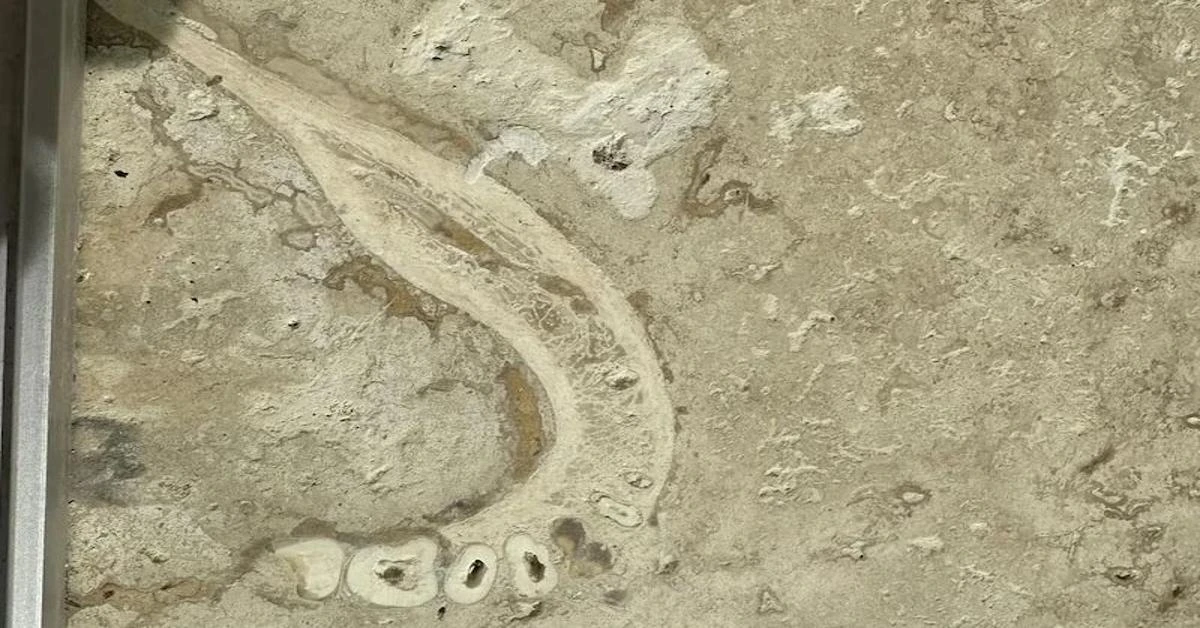Human jaw bone fossilized in Turkish travertine ends up in flooring of home in Europe

A human jawbone found in travertine sourced from Denizli, Türkiye, is being used as floor tile for a house in Europe, and now the discovery is being studied for dating and identification
A man was visiting his parents’ recently renovated home in Europe, when he noticed something unusual in a floor tile and upon closer inspection realized it was a fragment of a human jaw.
The Reddit user, a dentist, easily identified the jawbone, and it was determined that the bone came from a quarry in Denizli, Türkiye.
In the corridor leading to the terrace of the house where the bone was found, the lower jaw appeared to be cut at an angle, which reminded the dentist of Computed Tomography scans. The jawbone was found in a tile made of travertine, the dental expert said.
Scientists think that because the jawbone was formed about 0.7 million to 1.8 million years ago, it does not belong to a recently deceased person. Travertine is formed as a result of a change in chemical conditions and can trap anything that falls into it, which increases the likelihood of finding fossils.
It is difficult to determine the age and type of jawbone based on the photo, so the scientists hope to run the specimen through a CT scanner and create a three-dimensional model. An interesting detail is that the jawbone contains some teeth that have been treated.
Paleoanthropologists have previously discovered many fossils in the Denizli Basin, but this jawbone discovery is considered to be a very rare case.
Finally, it is noted that quarry workers did not check for major imperfections when cutting the travertine and therefore the jawbone went unnoticed. This discovery emphasizes that travertine should be seen not only as a decorative material, but also as an important historical and scientific resource.
Source: Newsroom



